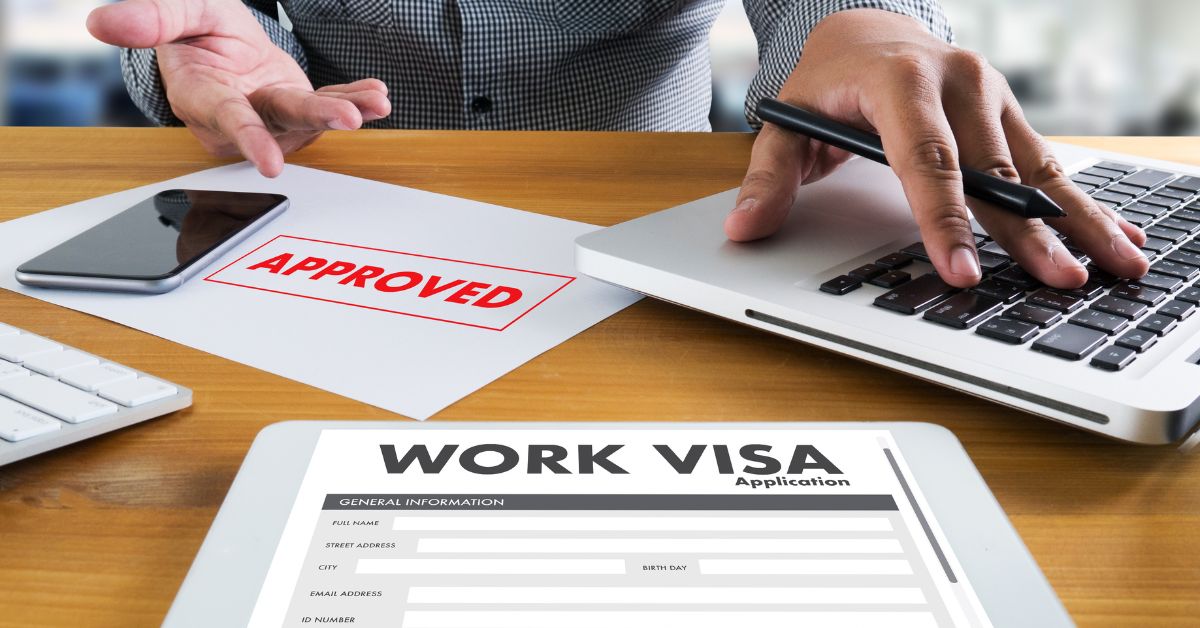The United Arab Emirates (UAE) has become a global hub for professionals and businesses, attracting talent from around the world. If you’re planning to work in the UAE, understanding the employment visa process is essential.In this guide, we’ll break down the steps, requirements, and key considerations for securing an employment visa in the UAE, along with how top HR consultants can simplify the process for you.
What is an Employment Visa in the UAE?
An employment visa is an official authorization enabling foreign nationals to legally work in the UAE. It is issued by the UAE government and is tied to the employer sponsoring the employee. The visa typically includes a residency permit, enabling you to live and work in the UAE legally.
Key Steps for Obtaining an Employment Visa
Securing an employment visa involves several steps, with both the employer and employee having specific responsibilities. Here’s a quick overview:
1. Job Offer and Sponsorship
- The process starts with a job offer from a UAE-based employer.
- The employer must sponsor the employee, which involves applying for a work permit and an entry permit on their behalf.
2. Entry Permit
- The entry permit allows the employee to enter the UAE and begin the process of obtaining a residency visa.
- This permit is usually valid for 60 days.
3. Medical Examination
- All employees must undergo a medical test, including screenings for infectious diseases.
- A clean medical report is mandatory for visa approval.
4. Emirates ID Application
- Employees need to apply for an Emirates ID, a mandatory identification card for all UAE residents.
5. Residency Visa Stamping
- The final step involves stamping the residency visa in the employee’s passport.
- This grants the individual legal residency and the ability to work in the UAE.
How HR Consultancy Can Help You

Navigating the visa process can be complex, especially for businesses hiring multiple employees or foreign professionals unfamiliar with UAE laws. Partnering with the best HR consultancy in Dubai can save time, reduce paperwork, and ensure compliance with all legal requirements. These consultancies offer:
- Visa Processing Services: They handle documentation, applications, and approvals efficiently.
- Compliance Assurance: Ensure adherence to UAE labor laws and immigration policies.
- Employee Onboarding: Streamline the integration process for new hires.
For businesses, HR consultancies also assist in workforce planning, payroll management, and legal advisory, making them invaluable partners for smooth operations.
Key Documents Required for an Employment Visa
Both the employer and employee need to prepare specific documents to initiate the visa process. Commonly required documents include:
- Valid passport with at least six months of validity
- Passport-sized photographs with a white background
- Attested educational certificates (for skilled jobs)
- Offer letter from the employer
- Trade license and company establishment card of the employer
- Completed visa application forms
Depending on the industry or job type, additional documents might be required.
Employment Visa Validity and Renewal
An employment visa is typically valid for one to three years, depending on the employment contract. Employers are responsible for renewing the visa before it expires. Failing to renew on time can result in fines or legal penalties.
Exploring Long-Term Residency Options
For professionals looking to establish deeper roots in the UAE, exploring long-term residency options can be beneficial. While employment visas are tied to employers, some residents may qualify for extended residency programs. Trusted consultancies, such as those specializing in uae golden visa consultants, can help individuals determine their eligibility for these programs and manage the application process.
Costs Involved in the Employment Visa Process
The costs of an employment visa depend on various factors, including the employee’s job category, the length of the visa, and the employer’s location. Employers typically bear the cost of processing visas for their employees, including:
- Work permit fees
- Medical examination fees
- Emirates ID issuance fees
- Residency visa stamping fees
While some companies cover all costs, others may deduct a portion from the employee’s salary. It’s essential to clarify these terms during the hiring process.
Key Considerations for Employees
If you’re an employee seeking an employment visa in the UAE, keep the following in mind:
- Verify Your Employment Offer: Ensure the job offer is legitimate and the employer is authorized to sponsor visas.
- Understand the Contract: Review the terms of your employment contract, including salary, benefits, and notice periods.
- Stay Informed: Learn about your rights and responsibilities as a UAE resident to avoid potential legal issues.
Advantages of Working in the UAE
The UAE offers a wealth of opportunities for career growth, competitive salaries, and tax-free income. It is home to a diverse and dynamic workforce, with industries ranging from finance and technology to construction and tourism. In addition to professional benefits, residents enjoy a high standard of living, world-class infrastructure, and a multicultural environment.
Final Thoughts
Understanding the employment visa process in the UAE is crucial for a smooth transition to working in this vibrant country. Whether you’re an individual seeking employment or a business expanding its workforce, professional assistance can make all the difference. Partnering with an HR consultancy ensures your visa process is seamless and compliant with UAE regulations.
Additionally, exploring long-term residency options with experts specializing in Golden Visa consultancy UAE can open doors to stability and growth in this global hub. By staying informed and working with trusted professionals, you can confidently navigate the path to securing your employment visa in the UAE.




